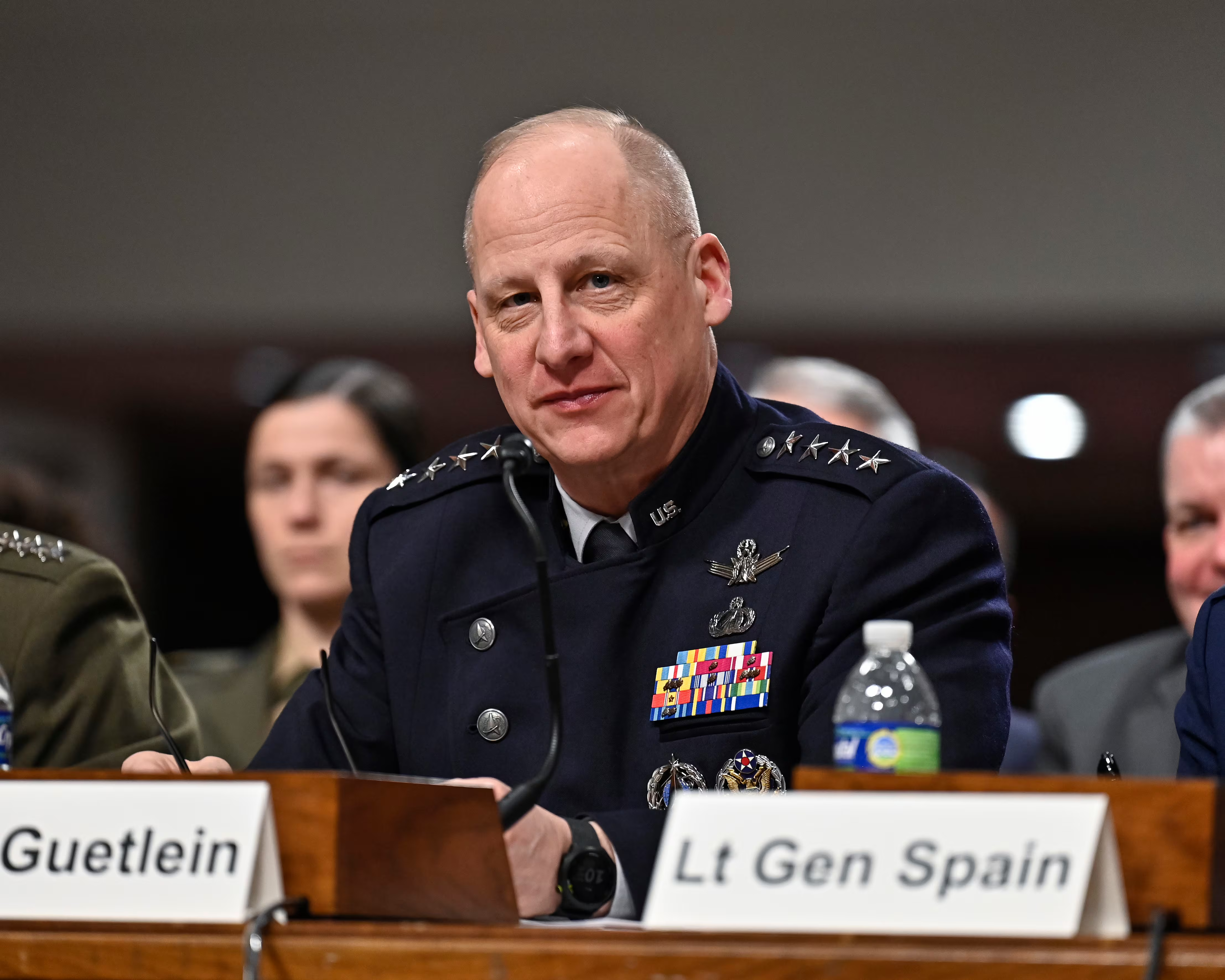WASHINGTON ― A host of Democrats and one Republican defense leader announced new actions Wednesday to fight the Trump administration’s move to shift $3.8 billion meant for 17 Navy and Air Force aircraft and other military programs toward the president’s border wall project.
In a pair of separate moves, the top Democrat and Republican on the House Armed Services Committee denied the transfer in a letter Tuesday, while 32 Senate Democrats ― led by Senate Minority Whip Dick Durbin ― introduced legislation to reverse the transfer. The Senate bill would also reduce the Pentagon’s authority to transfer funding between accounts to head off similar moves in the future.
While both actions provide Democrats a messaging opportunity ― to portray President Donald Trump as a foe of the military in an election year ― it’s unclear whether either effort will produce a practical effect. Trump has previously claimed the authority to bypass Congress when siphoning defense funds, and Senate Majority Leader Mitch McConnell, R-Ky., would have to be willing to buck the president to allow the Senate bill a floor vote.
HASC Chairman Adam Smith, D-Wash., and ranking member Rep. Mac Thornberry, R-Texas, in their Tuesday letter to acting Pentagon Comptroller Elaine McCusker, denied the Trump administration’s reprogramming action. They also hinted of further action to limit the Pentagon’s reprogramming authority.
“When Congress acts, the Department of Defense cannot ignore congressional will in pursuit of their own priorities. The steps taken in this reprogramming put the Department at risk to lose the flexibility Congress has historically granted to effectively manage the resources provided,” their letter said.
The duo, and other HASC members, expected to question the move when Defense Secretary Mark Esper and Joint Chiefs of Staff Chairman Gen. Mark Milley appear before the committee Wednesday morning. The administration’s move strips money from major aircraft and procurement programs that touch Republican and Democratic districts and states.
“Besides being an affront to Congress’ constitutional prerogatives to authorize and appropriate, this is clearly not in line with the [National Defense Strategy],” Smith said in his opening statement. “What risks does this diversion raise for the force? Do they further the stated aim to achieve ‘irreversible implementation of the National Defense Strategy?’ ”
Ahead of the hearing, House Armed Services Committee Vice Chair Rep. Anthony Brown, D-Md., decried the reprogramming’s use of funding for the C-130J transport aircraft, F-35 Joint Strike Fighters and P-8 submarine-hunting aircraft.
“Critical equipment damages our ability to engage in great power competition,” Brown said. “President Trump has twice taken funding from military construction projects, including the development of a new child care center on Joint Andrews Air Force Base, to pay for a wall he promised voters would be paid for by Mexico. His actions are yet another reckless abuse of power.”
The Senate bill from Durbin, who is the top Democratic appropriator for defense in the Senate, called on the upper chamber to reassert Congress’ power of the purse. The bill would slash the Pentagon’s general transfer authority from $4 billion to $1.8 billion, and slash its war fund transfer authority from $2 billion to $371 million.
“Every dollar diverted from our men and women in uniform for President Trump’s ‘big, beautiful’ border wall was appropriated by Congress to address a need identified by our military. This latest reprogramming was not just an attack on Congress’ power of the purse, it was an attack on military readiness” said Durbin, of Illinois.

Despite congressional opposition, Trump faced no consequences when making similar transfers last year, when the Pentagon canceled dozens of military construction projects to free up $3.6 billion and transferred $2.5 billion in counter-drug money.
Trump declared a national emergency roughly a year ago to move the money and bypass Congress, after it denied him the billions of dollars he has requested for the U.S.-Mexico wall.
The president enraged lawmakers when he renewed the national emergency this month, netting a joint rebuke from Senate Minority Leader Chuck Schumer, D-N.Y., and House Speaker Nancy Pelosi, D-Calif.
All together, Trump has obtained just over $3 billion for border barrier construction by working through regular congressional channels, subject to limitations imposed by lawmakers. And he used various transfer and emergency authorities to shift almost $7 billion more from the emergency declaration, a forfeiture fund containing money seized by law enforcement, and funding for military counter-drug activities.
This latest plan would build 30-foot fencing on federally controlled land in six border areas: San Diego and El Centro, California; Yuma and Tuscon, Arizona; and El Paso and Del Rio, Texas. Defense officials said its review concluded that all the sectors are “high intensity drug trafficking” areas and that money from military operations and maintenance accounts will be transferred to the counter-drug fund to be used for the barriers, roads and lighting.
The Department of Homeland Security last month asked the Pentagon to fund the construction of 271 miles of border wall at a cost of about $5.5 billion, as part of a counter-drug effort. Esper approved a portion of that.
The Associated Press contributed to this report.
Joe Gould was the senior Pentagon reporter for Defense News, covering the intersection of national security policy, politics and the defense industry. He had previously served as Congress reporter.








